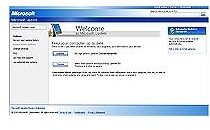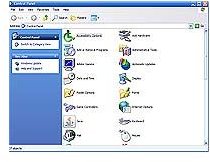Strengths and Weaknesses of Windows XP: Choosing the Best Operating System
Strengths
Despite the release of new operating systems by Microsoft, Windows XP is the most reliable and stable system the company has created. It is not a resource hog and can run well on just 512MB of RAM, which is great for users who have PCs with less power. The system has built-in compatibility modes to run older Windows software without issue. It is also capable of adapting to software created for the Vista operating system (IE7 and Windows Media Player 11).
Another one of the strengths of Windows XP is that it has the advantage of being easy to use and maintain. A right click anywhere on the desktop or Start button gives you shortcuts to common and useful tasks. It can automatically find and download software whenever plug-n-play hardware is added (like a printer memory card). It has multiple desktop search engine availability (Vista is limited in this area) to help users find what they need. For developers, XP has a huge driver library and developer resource base.
Weaknesses
One of the weaknesses of

Windows XP is that it is considered to be a less secure system than Microsoft Vista and more vulnerable to virus and malware attacks. When first set up, the default is an administrator account with an option of not adding a password. This access gives users unrestricted access to system files. If no password is added, the account can easily be broken into, leaving the door open to having the associated PC compromised.(If you want to learn how to fix this issue, check out this article on how to run Windows XP as a non-admin.)
Despite the potential security weakness, XP does give you control on what protection you can implement. Prevent issues by ensuring your administrator account has a password. Also, your computer can be protected effectively using third party firewall, virus, anti-spyware and other security software.
Microsoft is constantly trying to improve by adding new features to help keep their operating systems running smooth and secure. However, in Windows XP, update requests constantly interrupt the user. A small text bubble will hover over the bottom taskbar to let you know (which must be clicked on manually to close). Another annoying feature in Windows XP is the “Send/Don’t Send” error report that pops up whenever there is a problem with a Microsoft program or tool. Every time it appears, the user must choose to send the report to Microsoft or disregard it. No matter what is chosen, any affected application closes out.
Final Thoughts
Despite the release of newer Microsoft operatiing systems, many computer users still use Windows XP. Its stability and resource saving size make sense to average users who don’t want to spend money on upgrading. Those who use their PC for email and simple word processing do not necessarily need the latest operating system to perform these tasks. However, when looking at the overall strengths and weaknesses of Windows XP it is up to the individual to decide what is best for their personal computing needs.
References
- Microsoft official website
- Screenshot images created by Sheila Robinson.
